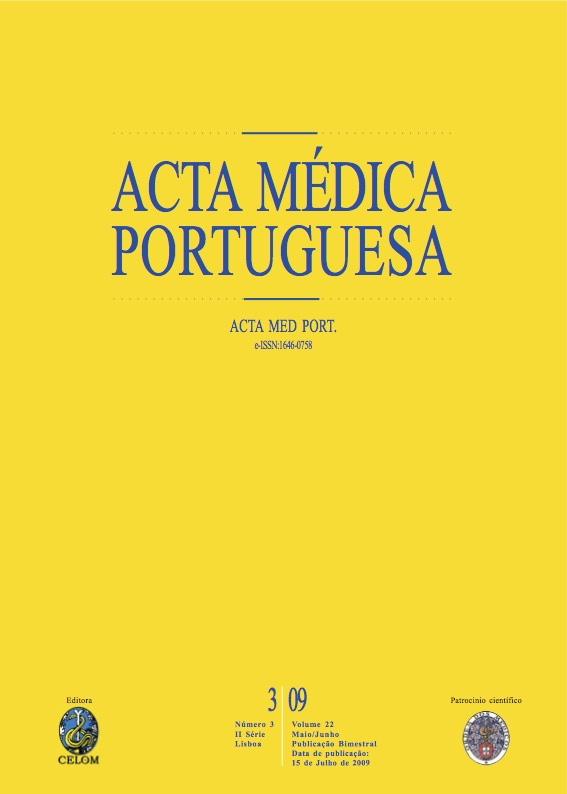O papel da leptina na regulação da homeostasia energética.
DOI:
https://doi.org/10.20344/amp.1694Resumo
As a growing number of people suffer from obesity, understanding the mechanisms by which various hormones and neurotransmitters have influence on energy balance has been the subject of intensive research. Recent experimental studies have implicated leptin as a crucial controller of body weight. Leptin is a 167-aminoacid peptide hormone, which is mainly produced by adipocytes, and its levels in the circulation are increased in proportion to fat mass. Circulating leptin conveys information to the hypothalamus regarding the amount of energy stored in adipose tissue, suppressing appetite and affecting energy expenditure. Considerable evidence shows that this hormone is also involved in the regulation of several physiological processes such as reproduction, angiogenesis, immunity, hematopoiesis and bone remodelling. Leptin acts through leptin receptors that are ubiquitously distributed and hence explain the pleiotropic roles of leptin. In the present review, we will summarize the recent developments in the leptin field, with particular attention to aspects related with physiological and molecular mechanisms regulating energy homeostasis, as well as their implications in the pathophysiology of weight disorders.Downloads
Downloads
Como Citar
Edição
Secção
Licença
Todos os artigos publicados na AMP são de acesso aberto e cumprem os requisitos das agências de financiamento ou instituições académicas. Relativamente à utilização por terceiros a AMP rege-se pelos termos da licença Creative Commons ‘Atribuição – Uso Não-Comercial – (CC-BY-NC)’.
É da responsabilidade do autor obter permissão para reproduzir figuras, tabelas, etc., de outras publicações. Após a aceitação de um artigo, os autores serão convidados a preencher uma “Declaração de Responsabilidade Autoral e Partilha de Direitos de Autor “(http://www.actamedicaportuguesa.com/info/AMP-NormasPublicacao.pdf) e a “Declaração de Potenciais Conflitos de Interesse” (http://www.icmje.org/conflicts-of-interest) do ICMJE. Será enviado um e-mail ao autor correspondente, confirmando a receção do manuscrito.
Após a publicação, os autores ficam autorizados a disponibilizar os seus artigos em repositórios das suas instituições de origem, desde que mencionem sempre onde foram publicados e de acordo com a licença Creative Commons









